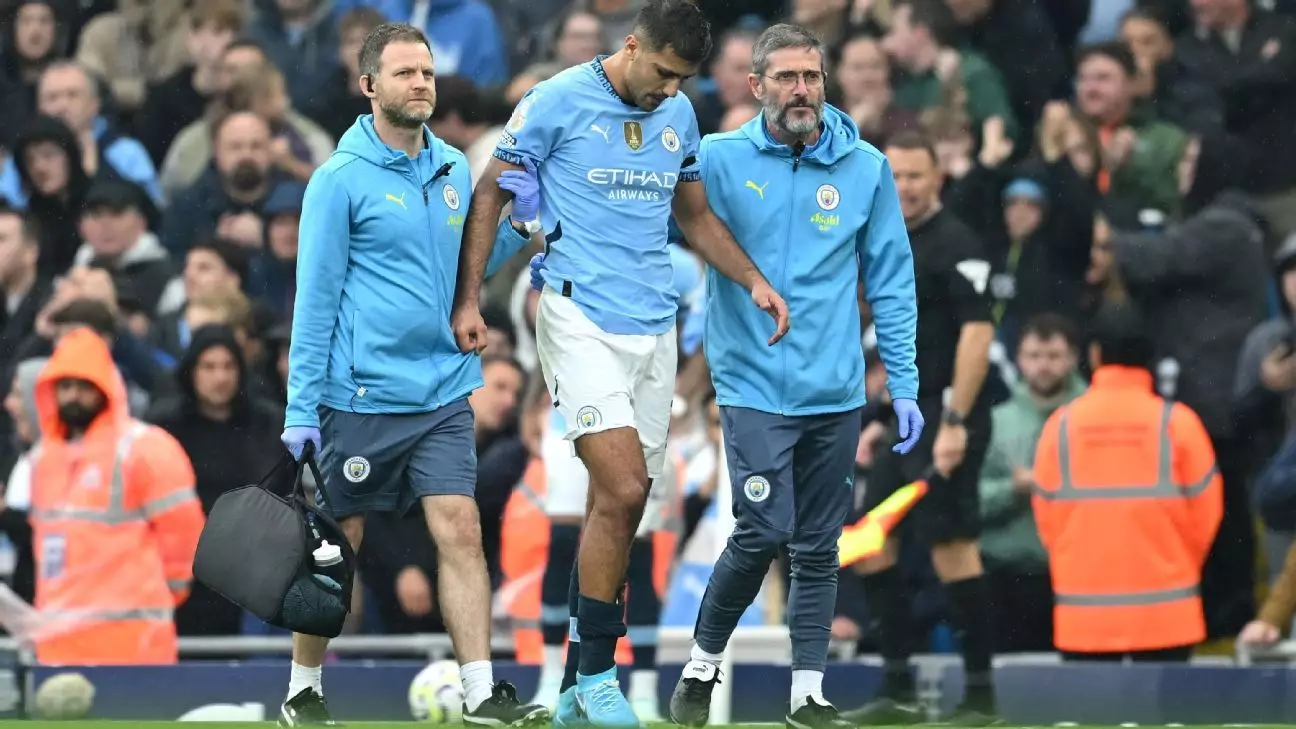The world of professional football is witnessing an unprecedented surge in the number of fixtures due to various international competitions and club tournament expansions. The LaLiga president, Javier Tebas, recently underscored the escalating tension by suggesting that it would not be surprising if players resorted to strike actions in response to this growing issue. With the ongoing discussions led by prominent players like Manchester City’s Rodri highlighting the burdensome schedule, it is clear that the pressure cooker of fixture congestion is beginning to boil over. Players, who operate at the highest levels of competition, have legitimate concerns over their physical and mental well-being, realigning the focus toward a dire need for reevaluating the fixture calendar.
Tebas, speaking to ESPN, emphasized that players have an intrinsic right to protest against their working conditions—akin to any worker. This assertion resonates with the increasing urgency with which players are advocating for a reduction in workloads. “We have reached certain limits,” he remarked, signifying the moment is ripe for serious discussions. With esteemed coaches like Pep Guardiola and Mikel Arteta articulating the toll that intense fixture schedules take on player health, the narrative shifts towards a collective consciousness. As the sentiment grows stronger among the football fraternity, the looming threat of a strike showcases the gravity of the situation.
The mental toll, in particular, demands more attention. Modern footballers are not mere athletes—they are professional artists who require mental fortitude to perform at premium levels consistently. This balance between physical and psychological health is integral for sustaining careers, creating a culture that values well-being over mere profit. The potential for a strike becomes a serious issue not merely as a labor dispute but as a plea for a paradigm shift in how the game is structured.
A Call to Action for FIFA and UEFA
Tebas’ comments roundly suggest a decisive call to action for FIFA and UEFA. The existing calendar, devoid of consultation with stakeholders on its long-term viability, raises questions regarding the governance of international football. It is paramount that these governing bodies take the players’ concerns seriously and engage in constructive dialogues. The insights from experienced figures like Tebas should not only be recognized but acted upon. Commenting on the need for reform, he articulated a straightforward mathematical analogy; two plus two must equal four. The relentless drive for more fixtures must align with the reality of human endurance.
With fatigue permeating the sport, key players, and managers alike are not just voicing concerns—they are advocating for transformative measures. The proposals for adjusting leagues and possibly the elimination of less critical competitions pose pragmatic solutions in alignment with player welfare. A balance must be established to ensure that the game retains its integrity and that players can perform to the best of their abilities without sacrificing their health.
In the midst of these pressing issues, Tebas also hinted at LaLiga’s aspirations to host a regular-season match in Miami, reflecting an ambition to internationalize the league further. The earlier attempts to create a bridge to American fans have faced regulatory hurdles, largely stemming from a lack of consensus within Spain’s football governance. While LaLiga is firmly inclined to expand its reach, it remains essential that this drive does not distract from the critical discussions about player workload and basic working conditions.
This ambition, although commercially viable, should not cloud the foundational purpose of football: player welfare. Before opening the doors to new markets, it ought to ensure that the players, who are the bedrock of the sport, are not overburdened. It is a delicate balance of interests that must be navigated thoughtfully.
Football is at a crossroads, teetering between commercialization and genuine player welfare concerns. The ongoing debates surrounding fixture congestion will necessitate earnest discussions on how to reform the current structures in a way that honors the sport’s integrity while safeguarding those who play it. The clarion call for awareness, change, and dialogue should pave the way for a more sustainable future in professional football where the players’ voices are not only heard but actively shape the landscape of the game. As pressure mounts, the propensity for drastic measures like a strike may serve as the catalyst for dusting off the existing frameworks and crafting a system that truly values its most essential assets—its players.

Leave a Reply